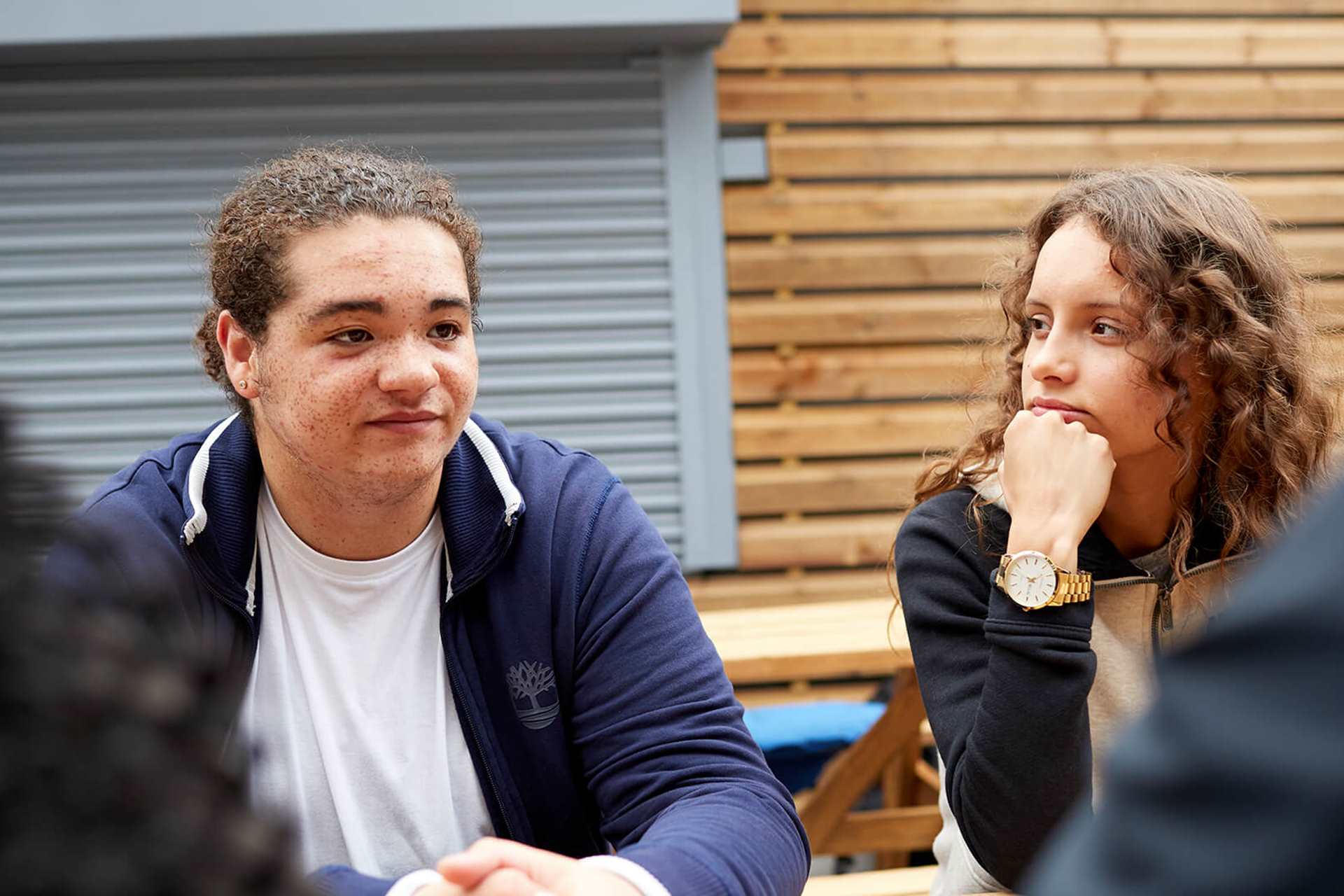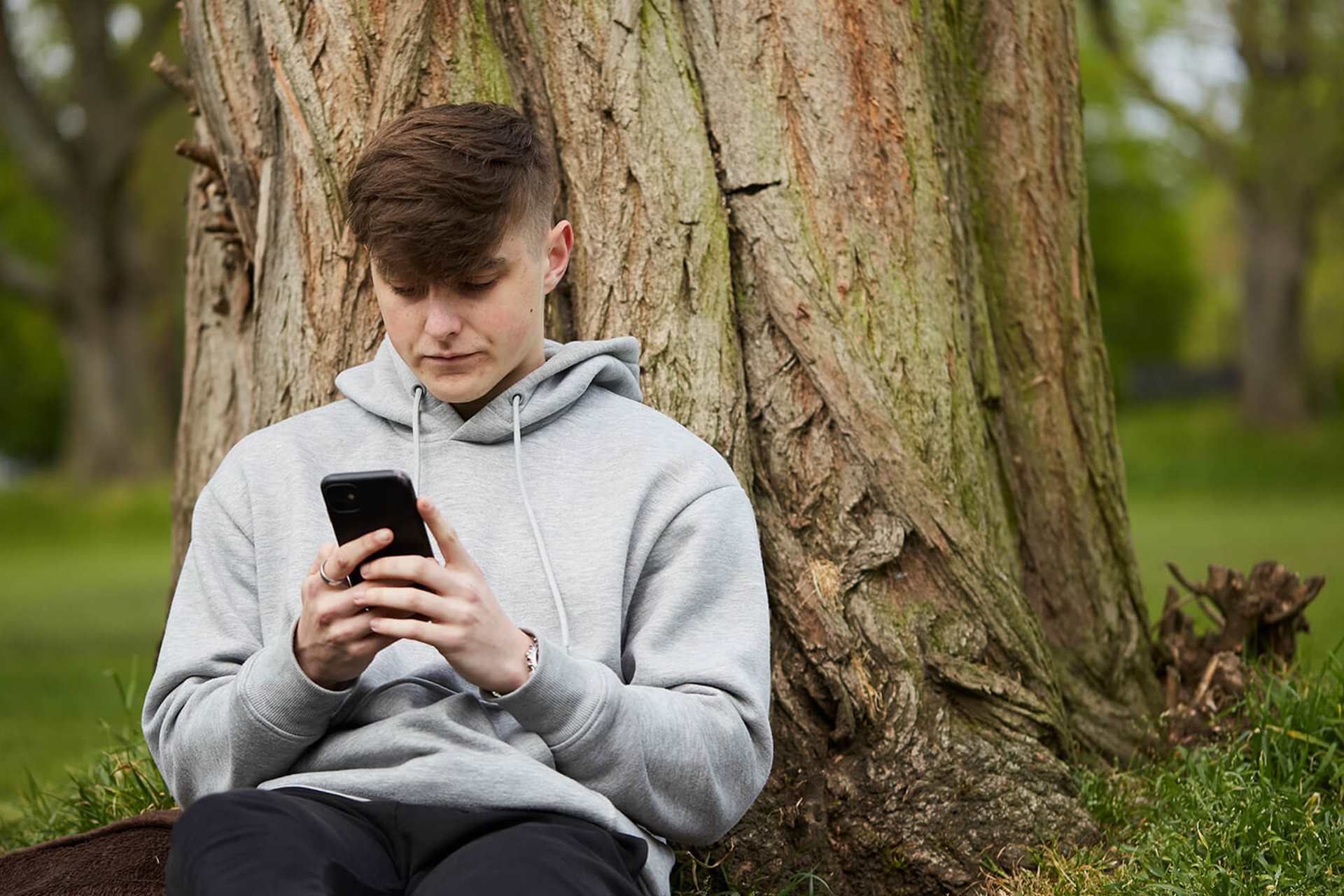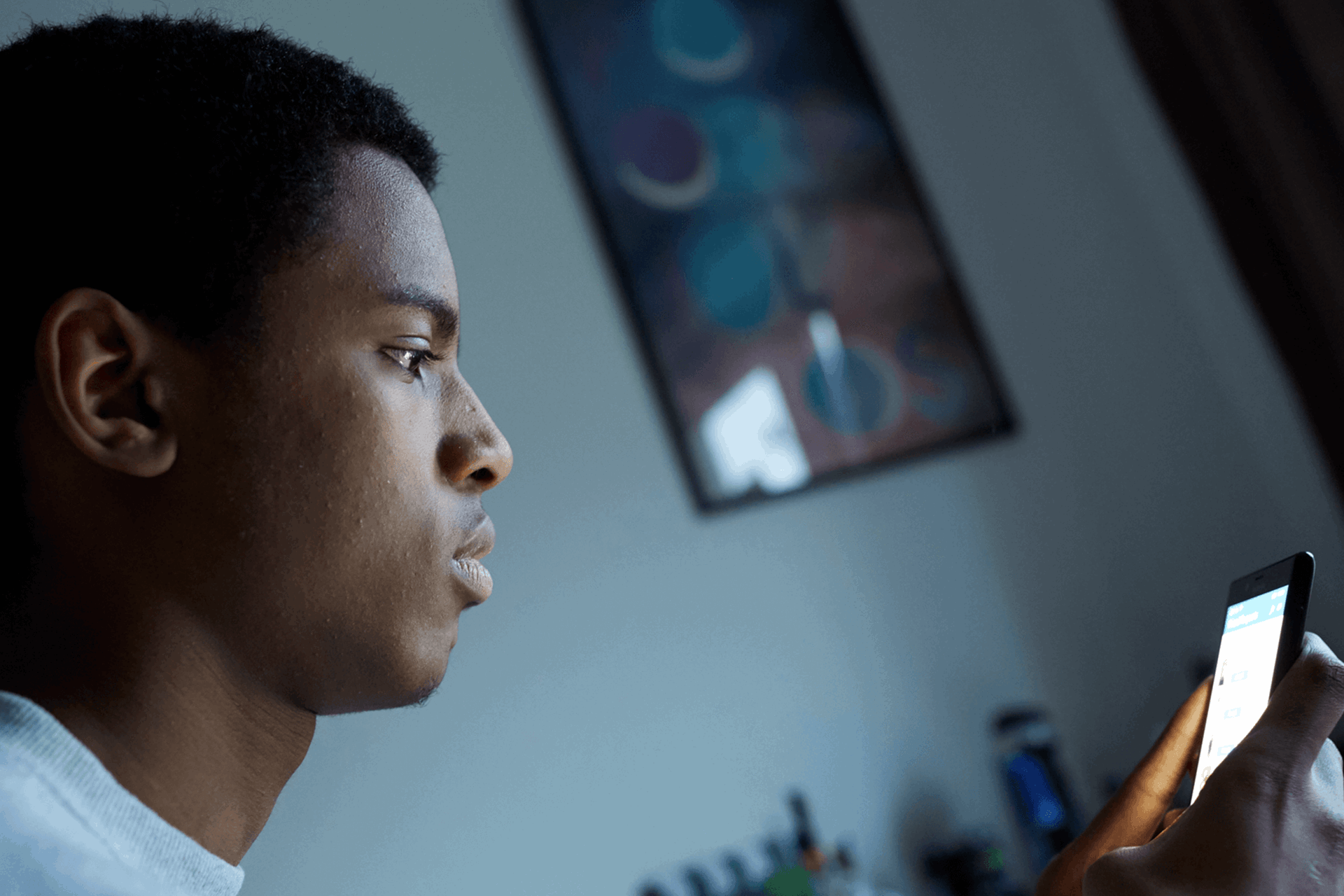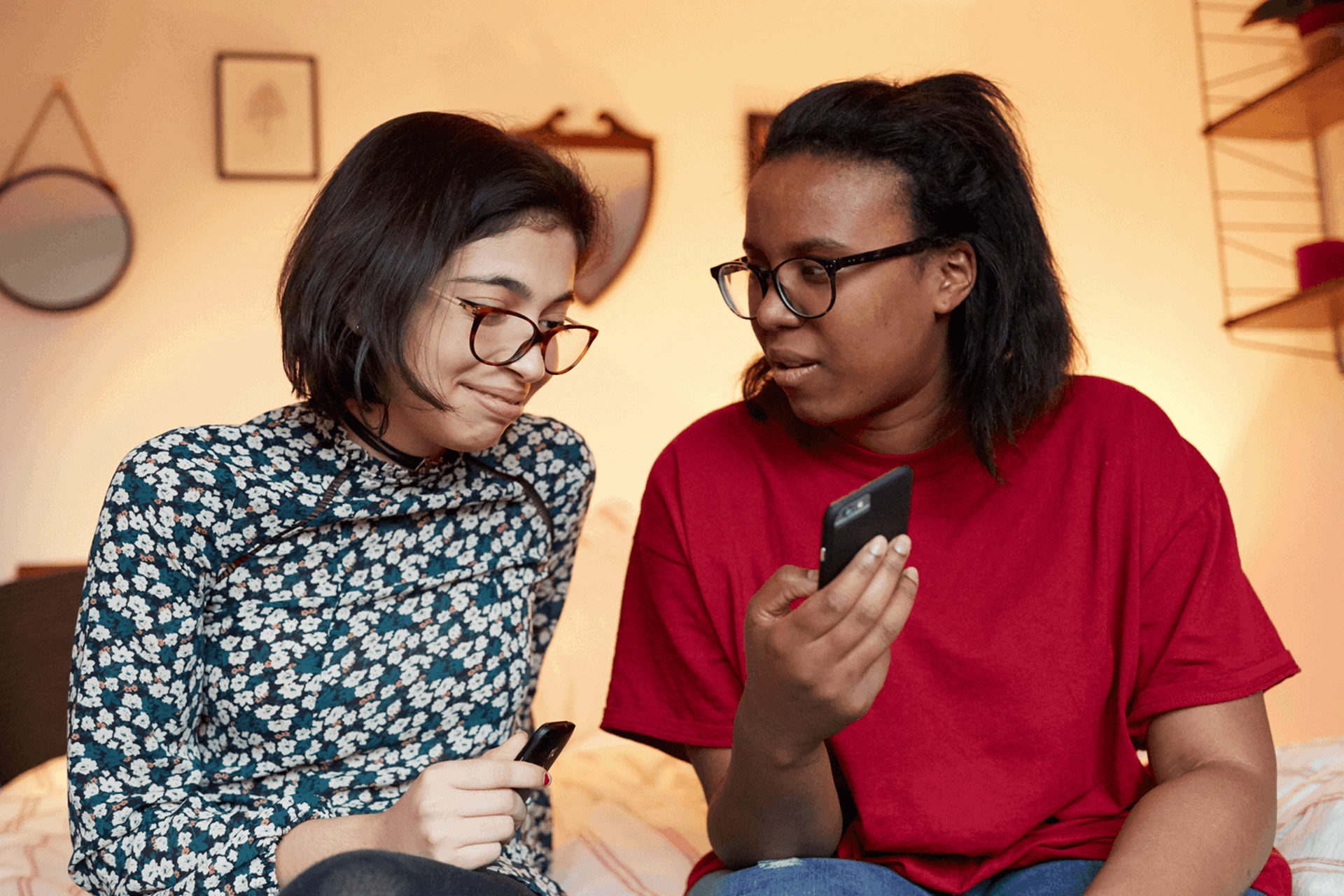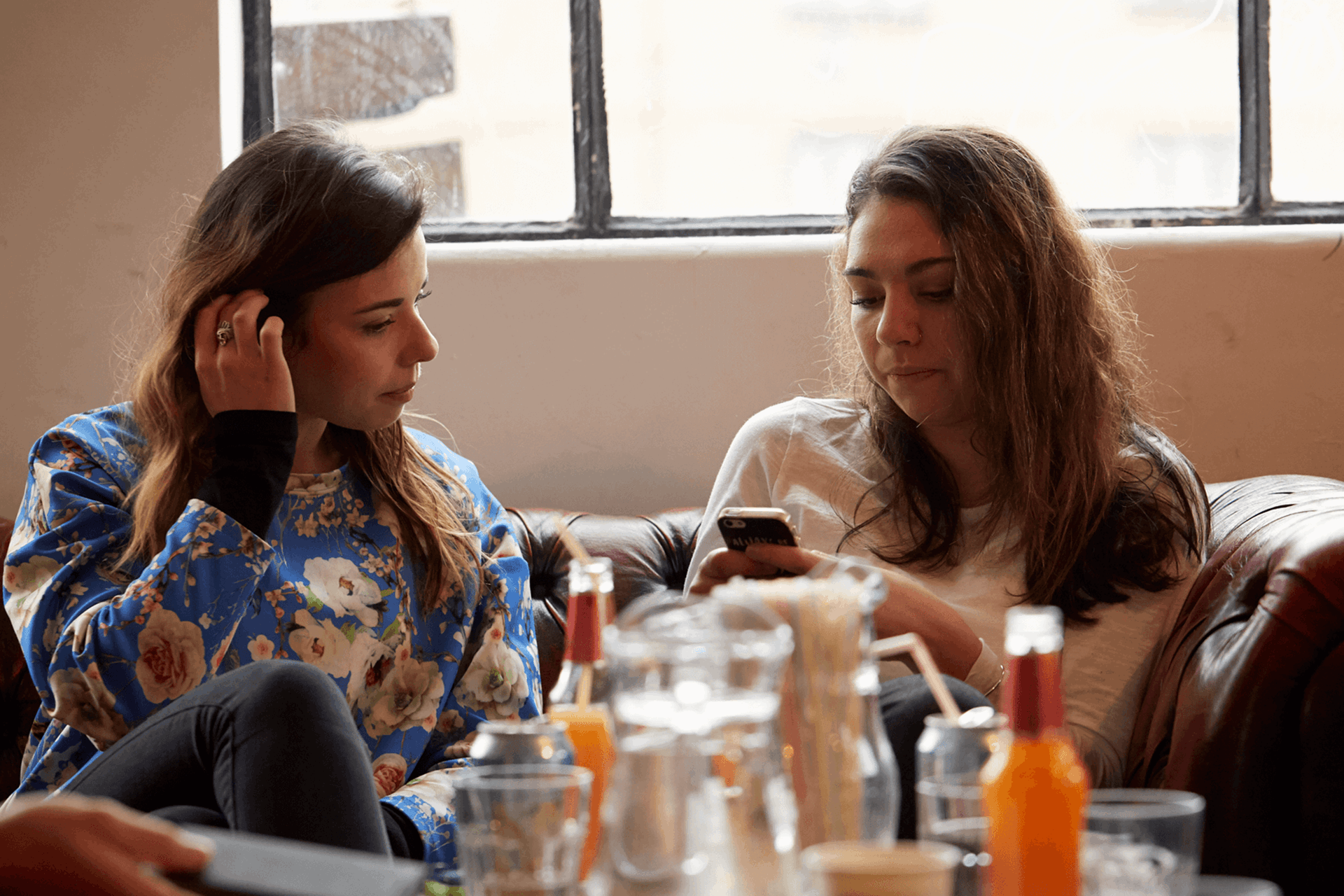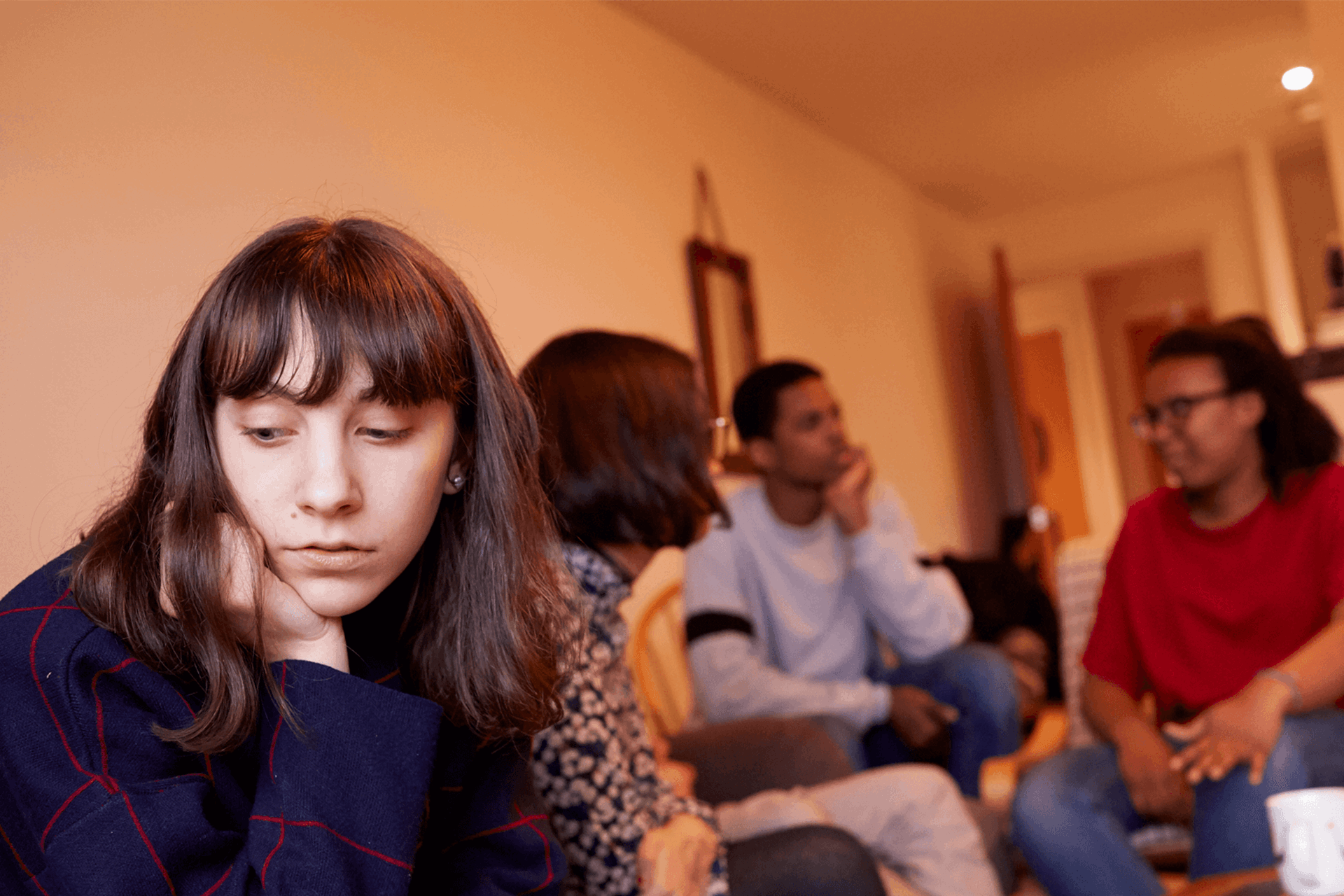Topics mentioned: eating problems, body image, social media and mental health
About: Ffion shares her experience of binge eating and restrictive dieting, and shares how diet culture affected her and her body image.
What does diet culture mean to me?
For me, diet culture is the set of expectations that values being thin and attractive over physical health and wellbeing. Diet culture emphasises “good” and “bad” foods, calorie restrictions and shame surrounding disordered eating.
My eating disorder journey
I have struggled with severe binge eating and restrictive dieting for around four years now. My longest period of restrictive dieting recently lasted for a year. Restrictive dieting meant having a daily calorie deficit even if this meant I often went to bed hungry. I became consumed with tracking my calories and felt very guilty for eating over my calorie “allowance”. I thought the problem was my weight, but during this period of restrictive dieting, neither my negative self-image nor my physical health improved.
For me, binge eating involves uncontrollably eating large quantities of food without knowing what or how much I have eaten. This behaviour often occurs for me because of guilt, shame, low mood, anxiety, or boredom. Going from restrictive dieting to binge eating – from feeling completely in control of my eating to completely out of control - was a very scary experience, and diet culture made it even more difficult.
I thought the problem was my weight, but during this period of restrictive dieting, neither my negative self-image nor my physical health improved.
Body image and mental health
Growing up I struggled a lot with my body image and my mental health. I was an overweight child, and this always made me feel like an outsider, resulting in low moods and anxious thoughts. I always felt a pressure to fit in with my peers and as a result I struggled with my mental health. I always felt like I had fallen short of the expectations that I set myself and that others set for me. These feelings of inadequacy fuelled most of my binge-eating episodes, meaning the more I ate, the worse my self-image and mental health became.
Hoping to improve my mental wellbeing, I turned to restrictive dieting. This lifestyle was impossible to maintain, leaving me with low self-esteem and a lack of confidence. I also experienced episodes of anxiety and depression.
For me, my negative body image damaged my mental wellbeing, and subsequently resulted in dieting and disordered eating.
I always felt like I had fallen short of the expectations that I set myself and that others set for me.
The role of social media
Social media impacts my mental health daily through posts about healthy eating, diet culture and body shaming. I see a lot of posts online where individuals shame themselves for secret eating and putting “excessive” amounts of food into their bodies. These posts make recovery from eating disorders very difficult as I still find myself comparing my body to others.
I have witnessed a shift recently where individuals are actively trying to normalise different body shapes and sizes, which encourages me every day to continue my recovery. It gives me hope that things can and will get better over time. I hope that as a society we can create an online environment where we encourage body positivity as opposed to judging other people’s bodies. To achieve this, I believe social media should be monitored to discourage the posting of misleading or inappropriate content. Posts containing distressing and sensitive content should be given a warning to ensure young people are not being encouraged to engage in disordered eating.
Diet culture and mental health issues have been a huge part of my life growing up and the lives of so many young people around me. If you’re struggling with your mental health as a result of diet culture, reach out for help. You are not alone.
I hope that as a society we can create an online environment where we encourage body positivity as opposed to judging other people’s bodies.
More information and advice
We have tips and advice to help you find the support you need. Take a look at our guides.
Where to get help
However you're feeling, there are people who can help you if you are struggling. Here are some services that can support you.
-
Beat
Offers information and support for anybody affected by eating disorders.
One-to-one web chat available. They also run a range of online support groups, which are all fully moderated and anonymous.
Enter your postcode in the HelpFinder to see what eating disorder support is available in your area.
View their information on helpline accessibility and confidentiality.
- Opening times:
- 365 days a year - weekdays (9am - 8pm); weekends (4pm - 8pm)



